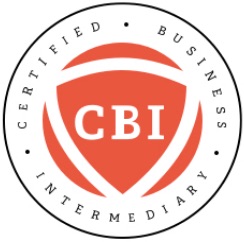How to Prepare for a Business Valuation
 A business valuation is essential to properly gauge what a business is worth and a business valuation is critical if the owners of the business are considering selling.
And there are multiple methods to be used when valuing a business but we’ve found that the task is immeasurably easier if the business owners are properly prepared.
We do business valuations all the time. The amount of time required to do one varies, of course, by the industry the business is in, and the size and complexity of the business’ operations among other things but what we find is that the vast majority of business owners are totally unprepared for valuation – and that they have no idea what is required.
From bank and financing purposes, impending sales, estate planning, divorces, partnership dissolution, the death or disability of a major equity holder and the uncertainty of a lawsuit, there are many reasons for having a business valuation done. Some of the most oft-cited include:
A business valuation is essential to properly gauge what a business is worth and a business valuation is critical if the owners of the business are considering selling.
And there are multiple methods to be used when valuing a business but we’ve found that the task is immeasurably easier if the business owners are properly prepared.
We do business valuations all the time. The amount of time required to do one varies, of course, by the industry the business is in, and the size and complexity of the business’ operations among other things but what we find is that the vast majority of business owners are totally unprepared for valuation – and that they have no idea what is required.
From bank and financing purposes, impending sales, estate planning, divorces, partnership dissolution, the death or disability of a major equity holder and the uncertainty of a lawsuit, there are many reasons for having a business valuation done. Some of the most oft-cited include:
- The business owners wants to sell their business
- The business needs to attract investors
- One or more of the owners are being bought out
- Offering equity – real or “ghost” – to certain employees
- New financing or lines of credit
- Tax planning
- The list goes on.
Business Valuation Pros
As with any other profession, you’re good at what you do but usually not so good at what you don’t do; what you weren’t trained to do. When a business owner hires a real estate agent to sell their business, I often use the expression that doing so is not much different from hiring a chiropractor to handle your kidney transplant.
The same concept is true for getting a business properly valued.
The two most logical sources of professionals for a business valuation are accredited business appraisers and professional business brokers that hold the Certified Business Intermediary (CBI) designation
Some accountants and banks offer the service but they generally farm the work out to, well, accredited appraisers or professional business brokers. We’re regularly hired by lenders to value the businesses of their clients.
But no matter who is hired, to assure that the result is accurate and to save time and money in the process, the business owners need to prepare for the valuation. Here are some tips.
When a business owner hires a real estate agent to sell their business, I often use the expression that doing so is not much different from hiring a chiropractor to handle your kidney transplant.
The same concept is true for getting a business properly valued.
The two most logical sources of professionals for a business valuation are accredited business appraisers and professional business brokers that hold the Certified Business Intermediary (CBI) designation
Some accountants and banks offer the service but they generally farm the work out to, well, accredited appraisers or professional business brokers. We’re regularly hired by lenders to value the businesses of their clients.
But no matter who is hired, to assure that the result is accurate and to save time and money in the process, the business owners need to prepare for the valuation. Here are some tips.
Get Your Financial Documents in Order
Every valuation is going to be based, at least in part, on the business’ financial performance.
At a minimum, whoever will be doing the valuation work will want the previous three to five years’ worth of the business’ tax returns and financial statements, including the balance sheet, income statement, and cash flow statement.
If you’re the business owner, the first thing to do is to take a close look at these statements to make sure everything is accurate and up to date. Aside from the tax returns, it’s unusual that we get accurate financial documents. Errors usually abound, generally because most small business owners are focused on running their business rather than doing the bookkeeping.
 Once the owner feels the documents are complete and accurate, the next thing to do is to try to identify any expenses that are not crucial to the operation of the business.
Once the owner feels the documents are complete and accurate, the next thing to do is to try to identify any expenses that are not crucial to the operation of the business.
For example, if the business’ vehicle insurance includes coverage for the spouse’s car and the 19 year-old son who has successfully demolished no less than two cars and a pickup truck in his stellar three-year driving tenure, that expense needs to be recalculated.
Other finance-related documents, such as sales reports and industry forecasts can also be important and including them will make the valuator’s that much easier – and less costly.
_____________________________________________________________________________
Our course, The Basic “How-To” of Becoming a Business Broker”, teaches how to market and sell businesses.
Become a Professional Business Broker…
Organize Other Essential Documents
Contracts that the business is bound by – or that the owners are bound by, if such contracts are part of the business’ operations – are also considered “financial” if they require some specific performance by the business or are likely to generate future revenue for the business.
If the business evaluation is being done with a sale in mind, additional documents would include copies of business licenses, permits, any deeds and any certifications held by the business or any employees that will stay with the business post closing. Also, any ongoing contracts with insurers and creditors will be requested by any sentient buyer and most professional business valuators.
Finally, the business’ credit report could impact its value.
List All Intangible Assets
Your business’s tangible assets (such as cash, property, and equipment) should be listed on your balance sheet. Some intangible assets may be listed there as well, such as copyrights or patents. But think about other intangible assets that may provide value.
An extensive email list, the business’s URL (web address), loyalty club, good SEO rankings engaged social media profiles, and positive online reviews can all help the business attract and retain customers are all assets and each has some value, albeit intangible. These types of assets could help improve your business’s valuation even if they’re not listed on the balance sheet.
The Bottom Line
Business appraisers and professional business brokers can’t do business valuations for free. It takes time, energy and research to properly value a business and the less time these professionals have to spend on any given assignment, the lower the cost. When getting a business valuation done, the owners of the business can save themselves some money simply being prepared. They can also save themselves some time, energy and aggravation by hiring a pro to do the pro’s job. If you have any questions, comments or feedback on this topic – or any topic related to business – I want to hear from you. Put them in the Comments box below. Start the conversation and I’ll get back to you with answers or my own comments. If I get enough on one topic, I’ll address them in a future post or podcast. I’ll be back with you again next Monday. In the meantime, I hope you have a safe and profitable week! Joe #business #businessacquisition #sellabusiness #becomeabusinessbroker #businessbrokering #businessvaluation #MergersandAcquisitions
#business #businessacquisition #sellabusiness #becomeabusinessbroker #businessbrokering #businessvaluation #MergersandAcquisitions